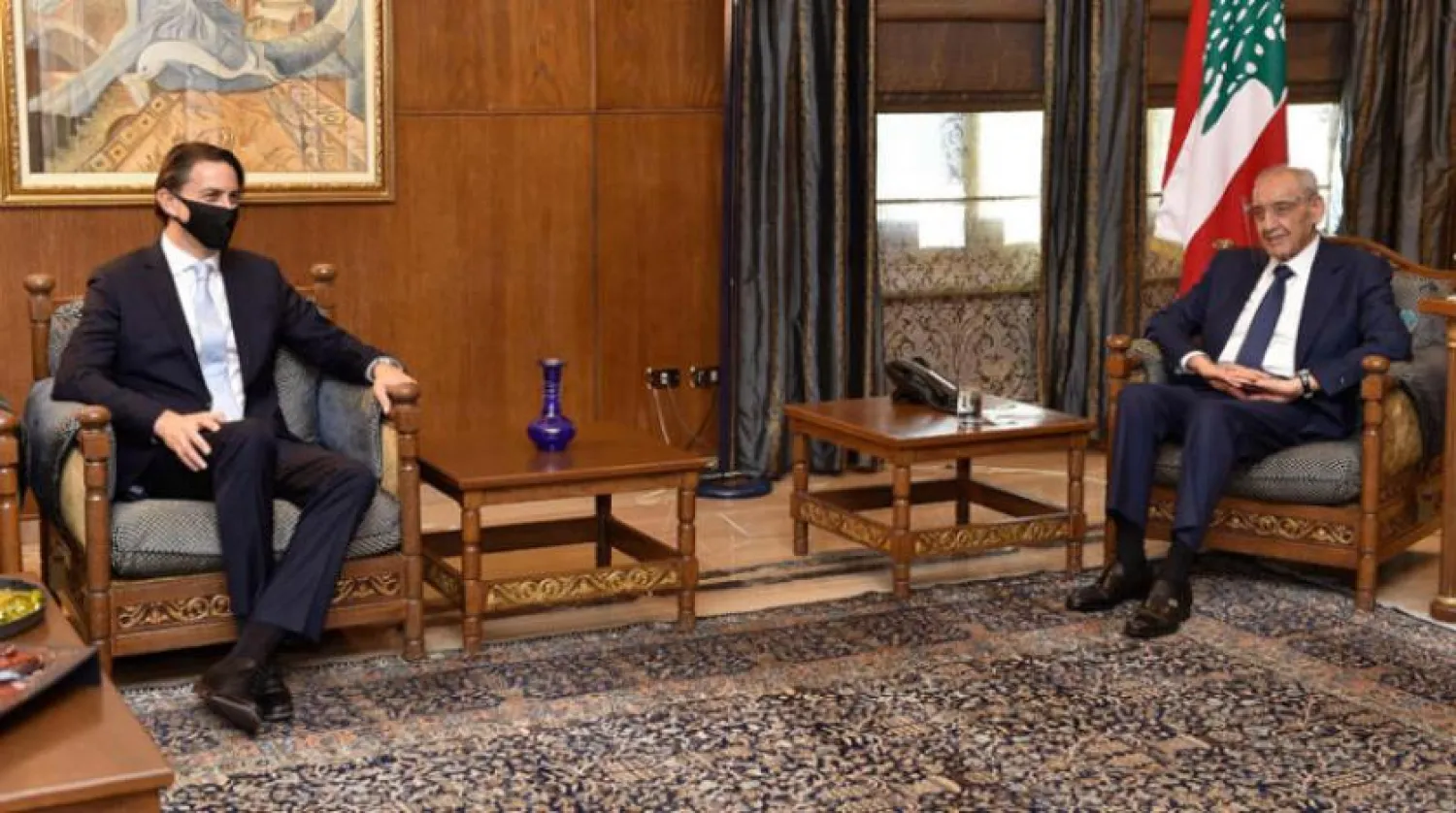US mediators are trying to rekindle indirect negotiations between Lebanon and Israel after they arrived at an impasse following the former’s request to gain more territorial waters believed to hold oil and gas.
Lebanon tacitly retracted its request by agreeing not to demarcate sea borders according to zones on which negotiations were launched and by returning to the framework agreement announced by Parliament Speaker Nabih Berri in October last year.
For years, Berri has been the file’s chief negotiator.
US envoy Amos Hochstein, a senior energy security adviser at the State Department, met several Lebanese officials on Wednesday in the presence of US Ambassador to Lebanon Dorothy Shea.
Berri confirmed to Asharq Al-Awsat that the atmosphere is more than positive.
He pointed out that discussions with the US had principally shelved the thought of shuttle negotiations, an idea proposed by US mediators as an alternative to indirect talks taking place at UN headquarters at the borders.
“An extensive discussion took place that concluded with a return to the framework agreement that we had previously announced as a basis for negotiations, and for the talks to go back to the UN headquarters as was the case previously,” Berri told Asharq Al-Awsat.
There is initial approval from the US, and Hochstein will visit Tel Aviv to obtain Israeli consent, explained Berri.
The speaker also said he received assurances that Lebanon would be exempt from the restrictions of the Caesar Act in the issues of drawing Egyptian gas and electricity from Jordan through Syria.
Hochstein, who arrived in Beirut on Tuesday evening, had met with President Michel Aoun, Berri, and Prime Minister Najib Mikati.
While the sources said Hochstein will also meet with officials in Israel, they pointed to a lack of signals on negotiations resuming imminently. So far, nothing has been settled.









